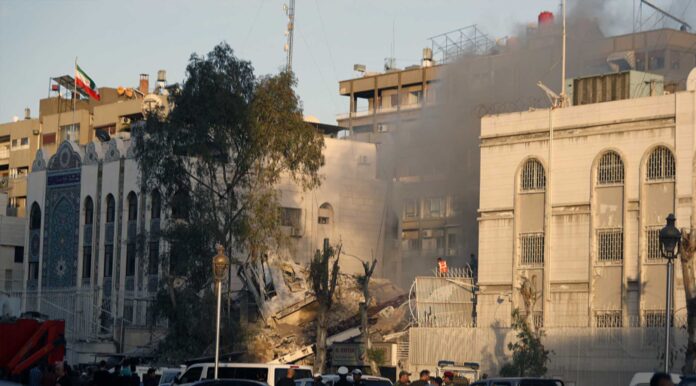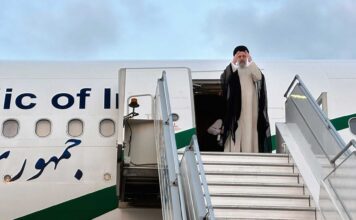Washington: Shortly after an airstrike widely attributed to Israel destroyed an Iranian consulate building in Syria, the United States had an urgent message for Iran: We had nothing to do with it.
But that may not be enough for the U.S. to avoid retaliation targeting its forces in the region. A top U.S. commander warned on Wednesday of danger to American troops.
And if Israeli Prime Minister Benjamin Netanyahu’s recent broadening of targeted strikes on adversaries around the region to include Iranian security operatives and leaders deepens regional hostilities, analysts say, it’s not clear the United States can avoid being pulled into deeper regional conflict as well.
The Biden administration insists it had no advance knowledge of the airstrike Monday. But the United States is closely tied to Israel’s military regardless. The U.S. remains Israel’s indispensable ally and unstinting supplier of weapons, responsible for some 70% of Israeli weapon imports and an estimated 15% of Israel’s defense budget. That includes providing the kind of advanced aircraft and munitions that appear to have been employed in the attack.
Israel hasn’t acknowledged a role in the airstrike, but Pentagon spokeswoman Sabrina Singh said Tuesday that the U.S. has assessed Israel was responsible.
Multiple arms of Iran’s government served notice that they would hold the United States accountable for the fiery attack. The strike, in the Syrian capital of Damascus, killed senior commanders of Iran’s Islamic Revolutionary Guard Corps for Syria and Lebanon, an officer of the powerful Iran-allied Hezbollah militia in Lebanon, and others.
American forces in Syria and Iraq already are frequent targets when Iran and its regional allies seek retaliation for strikes by Israelis, notes Charles Lister, the Syria program director for the Middle East Institute.
“What the Iranians have always done for years when they have felt most aggressively targeted by Israel is not to hit back at Israelis, but Americans,” seeing them as soft targets in the region, Lister said.
U.S. officials have recorded more than 150 attacks by Iran-backed militias in Iraq and Syria on U.S. forces at bases in those countries since the war between Hamas and Israel began on Oct. 7.













